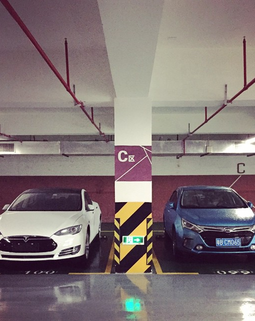The Thailand Auto Industry is slowly emerging from a prolonged downturn, according to top executives and industry leaders speaking at the 2025 Bangkok International Motor Show. Despite a significant decline in domestic car production and sales over the past 20 months, industry players believe the worst may be behind. MG Motor’s Thailand Vice President, Pongsak Lertrudeewattanavong, noted that the sector may have “bottomed out” and is poised for a gradual recovery this year.
Thailand, Southeast Asia’s second-largest economy, has long been recognized as a regional auto manufacturing hub. It is home to global brands such as Toyota, Honda, and Chinese electric vehicle (EV) giants like BYD, Great Wall Motor, and Zeekr. The Thailand Auto Industry is valued at approximately $50 billion, reflecting its critical role in the national economy.
Market Challenges: Sales Decline and Credit Rejection
Despite some optimism, recent sales figures show the scale of the challenge ahead. In February 2025, domestic car sales fell by 6.68% compared to the previous year. However, this drop was less severe than January’s 12.26% decline, suggesting that conditions may be stabilizing. According to the Federation of Thai Industries, March data will offer a clearer picture of the recovery trend.
The Thailand Auto Industry has been weighed down by high household debt and limited access to credit, with car loan rejection rates nearing 70%. In 2024, only 572,675 vehicles were sold in Thailand — the lowest in 15 years. However, industry executives forecast a modest rebound to around 600,000 units sold in 2025. While this remains far below the 1.44 million units sold in 2012, it signals a turning point.
Government Support and EV Momentum
Government intervention has been crucial in easing the pressure on the Thailand Auto Industry. Measures such as tax incentives for plug-in hybrid production and credit guarantees for pick-up trucks — which represent one-third of Thailand’s car market — are helping stabilize the sector. “Pick-ups are the industry backbone,” said Siamnat Panassorn, Vice President of the Electric Vehicle Association of Thailand.
Positive economic indicators, such as a 14% surge in exports, are also encouraging. These developments offer a favorable environment for recovery, especially as the EV segment continues to grow. For instance, Chinese automaker Zeekr is targeting a fivefold increase in luxury EV sales in Thailand this year, despite remaining cautious about the broader market outlook.
Interested in buying or selling a vehicle in Thailand? Visit Auto24 for top listings and trusted dealers!
Outlook: Recovery Still Fragile But Hopeful
Mazda’s Thai CEO, Thee Permpongpanth, acknowledged that while total car sales may see only slight improvement in 2025, the pace of decline is slowing. “We are already seeing smaller contractions,” he said, indicating cautious optimism.
The Thailand Auto Industry appears to be “turning a corner,” supported by government initiatives and emerging demand in niche markets like EVs. While structural issues such as high debt remain, industry stakeholders are hopeful for a slow but steady return to growth.
Conclusion: A Cautious Road to Recovery
After years of stagnation, the Thailand Auto Industry is showing early signs of recovery. With supportive government policies, a rebound in exports, and momentum in the EV space, the sector may be on its way to regaining lost ground. However, challenges remain, and growth will likely be incremental.
Do you think Thailand's auto market will fully recover in 2025? Share your thoughts in the comments below!





